Marsalis’ stunning opus transcends race and epochs
The New York Philharmonic messed up rhythms, the singers struggled to find their cues and conductor Kurt Masur begged for last-minute clarifications in a score that never had been performed before.
Meanwhile, composer Wynton Marsalis paced the stage of Lincoln Center’s Avery Fisher Hall, attempting to answer 1,001 questions lobbed at him by instrumentalists, singers, technicians and practically everyone else within earshot.
Things were not going swimmingly that frozen afternoon in December 1999, as Marsalis, Masur, the Philharmonic, a band of jazz musicians and a massive choir readied themselves for the world premiere of Marsalis’ most ambitious work to date, the epic orchestral suite “All Rise.”
Disjointed start
“It was so bad on first rehearsal,” recalls Marsalis, artistic director of Jazz at Lincoln Center, in New York, as he prepares for the Chicago debut of the massive work, at Symphony Center starting Thursday.
“It was like two different ensembles were playing,” adds Marsalis, referring to the disjointed rehearsal of the Philharmonic and the Jazz at Lincoln Center Orchestra (which then was called the Lincoln Center Jazz Orchestra).
Marsalis blames himself for much of the stress that surrounded the unveiling of “All Rise,” which in the years since has been recognized widely as a major addition to the jazz orchestral repertory.
The problem was that he hadn’t been able to finish the score early enough to give the Philharmonic sufficient time to digest it. That he wrote the work on the scale of a Mahler symphony, albeit in a decidedly more populist idiom, only added to the musicians’ burden. So did the remarkable stylistic breadth of the piece, which during the course of its 12 movements embraces American blues, Argentine tango, Brazilian samba, Russian neo-classicism, gospel-tinged choral singing, New Orleans parade music and more. Only the most rigorously rehearsed musicians could do justice to such an opus.
Surprisingly, though, that first performance wasn’t a train wreck. On the contrary, it showed moments of high melodic inspiration and propulsive rhythmic drive, even though no one — not even Marsalis himself — could take the full measure of “All Rise” at that early date. The performance simply didn’t convey the full impact of what Marsalis had put on the page.
“After that first performance, I was depressed,” says Marsalis, who had spent a year writing and orchestrating the piece but believed the effort might have been in vain.
It wasn’t until he and Masur performed the work nearly a year later in Prague, he says, that it began to take shape as a cohesive composition.
For the rest of the musical public, including this listener, “All Rise” did not make its fullest impression until 2002, when it came out as a double CD (on Sony Classical).
With Esa-Pekka Salonen conducting a beautifully rehearsed Los Angeles Philharmonic — as well comparably polished vocalists and jazz musicians — “All Rise” emerged more tightly edited and sleekly performed as a bona fide masterpiece, as well as a work without real parallel in either the classical or jazz traditions.
Though classical composers from Maurice Ravel to Aaron Copland brought unmistakable jazz elements into their works, and though jazz artists from Duke Ellington to Dave Brubeck delved into classical composition (or something very close to it), “All Rise” reaches well beyond the jazz-classical divide. By drawing upon music of the church and the dance hall, by spanning continents and epochs, Marsalis created a work that, in effect, speaks to all humanity.
If its message of struggle and salvation, as well as its title, suggests religious themes, the piece ultimately is less a sacred work than simply a statement of the faith and optimism of its composer. The same philosophy courses through many of his other large works as well, most notably “In This House, On This Morning” (a 1994 jazz perspective on a gospel church service) and “Blood on the Fields” (a 1997 vocal-instrumental suite that was the first jazz work to win the Pulitzer Prize in music).
Moreover, because Marsalis has expressed his ideas in down-to-earth musical languages, the piece proves far more accessible than listeners might expect when such large forces convene in a classical concert hall. From the down-home string playing of the “Wild Strumming of Fiddle” movement to the exultant South American dance rhythms of “El `Gran’ Baile de la Reina, “ “All Rise” celebrates the everyday lives of everyday people, albeit with consistently high craft.
Perhaps it was fitting, then, that this great call for cultures to come together attained sudden prominence after the Sept. 11 terrorist attacks. Long scheduled to perform “All Rise” with the L.A. Philharmonic at the Hollywood Bowl on Sept. 13, 2001, Marsalis and conductor Salonen very nearly saw the performance canceled, as many other cultural events were during that terrible week. Both musicians and their organizations, however, were determined to forge ahead and, after some travail, managed to bring all the requisite musicians to L.A. by car and bus (since all flights were canceled).
CNN broadcast portions of the concert live, making “All Rise” one of the first global cultural events in the aftermath of the Sept. 11 devastation. Its passages in which the chorus repeatedly chants “Save Us” suggested that Marsalis may have captured the tenor of the times with more haunting clarity than he originally envisioned.
Ever since then, Marsalis has taken the work around the world, garnering increasingly positive reviews. Though performed only sporadically because its demands on musicians and orchestral budgets run high, the work clearly leaves a deep impression on listeners.
“The piece is an astonishing 12-movement conjunction of jazz and classical-symphony music,” wrote John Fordham in The Guardian, in London, after last year’s performance there. “The swinging and improvised sections intertwine seamlessly with sweepingly sophisticated strings parts; the musical idioms range from choral arrangements to barn-dance hoedowns; emotional ambiguity is nicely balanced against holy-rolling optimism. All this makes the two-hour epic one of Marsalis’ lifetime landmarks.”
Even critic Richard Dyer, who expressed reservations about the work’s length and Marsalis’ orchestral writing, found himself convinced by evening’s end, after a 2003 Boston Symphony Orchestra rendition.
“The flaws fade in the course of the performance because of the generosity and authenticity of feeling that pervades the music,” Dyer wrote in the Boston Globe. “There is something wonderful in every movement, and the cumulative impact is irresistible.”
Not that the piece is any easier to dispatch today than it was during its tenuous world premiere. Certainly the CSO and its Chorus, which most observers rank as the best in the country and among the top ensembles in the world, do not approach the work lightly.
“It’s going to be a challenge for our orchestra and our chorus, but I think they’re going to rise to that challenge,” says James Fahey, director of programming for Symphony Center Presents. Considering the prowess and reputation of both the orchestra and the chorus, the Chicago performance of “All Rise” could be the best it has yet received in the U.S.
Marsalis’ mantra
At the very least, however, it will sum up Marsalis’ lifelong philosophy of optimism in the face of adversity.
“That’s just what I believe in, but I also believe it’s in our music,” Marsalis says.
“It’s in all the music that came from Afro-American people, up until the most recent music,” he adds, perhaps pointing to the nihilism of much rap and hip-hop culture.
“It’s in all-American music. It’s in John Philip Sousa’s music, it’s in Gershwin’s shows, it’s in the dancing of [Bill] `Bojangles’ [Robinson] and Fred Astaire.”
And it’s in the climactic passages of “All Rise,” when the chorus sings out:
“Oh, yes! Our Lord has given us all,
“Something that just refuses to die
“Open your heart and see,
“Then you’ll hear the sweet soul
“Of what I sing.”
“All Rise” will be performed by Wynton Marsalis, the Jazz at Lincoln Center Orchestra and the Chicago Symphony Orchestra and Chorus, Steven Sloane conducting, at 8 p.m. Thursday through Saturday, 3 p.m. Jan. 21 in Symphony Center, 220 S. Michigan Ave.; call 312-294-3000.
- – -
The evolution of a work of art
Dec. 29-30, 1999
Avery Fisher Hall at Lincoln Center, New York
World premiere
Technically flawed but artistically promising performance by the New York Philharmonic.
–––––––––––––––––
Oct. 5, 2000
Dvorak Hall, Prague, Czech Republic
European premiere
Marsalis considers this the first aesthetically cohesive rendition, featuring Czech Philharmonic.
–––––––––––––––––
Sept. 13, 2001
Hollywood Bowl, Los Angeles
West Coast premiere
In the wake of 9/11 , portions of concert featuring the Los Angeles Philharmonic are broadcast globally on CNN.
–––––––––––––––––
Sept. 14-15, 2001
Todd A-O Scoring Stage, Los Angeles
Recording session
Marsalis, conductor Esa-Pekka Salonen, the Los Angeles Philharmonic and several choirs document the work brilliantly.
–––––––––––––––––
Dec. 3, 4 and 6, 2003
New England premiere
Marsalis, conductor Kurt Masur and the Boston Symphony Orchestra leave crowds “all but dancing in the aisles,” notes the Boston Globe.
–––––––––––––––––
Sept. 30-Oct. 5, 2005
Tour of United Kingdom and Scotland
Marsalis and Masur visit Birmingham, Cardiff, London and Manchester (in the U.K.) and Glasgow, winning enthusiastic reviews.
–––––––––––––––––
Thursday through Jan. 21
Chicago premiere
Marsalis, conductor Steven Sloane, Chicago Symphony Orchestra and Chorus present what could be the most technically accomplished performance to date.
–––––––––––––––––
– Howard Reich, Tribune arts critic
Source: Chicago Tribune

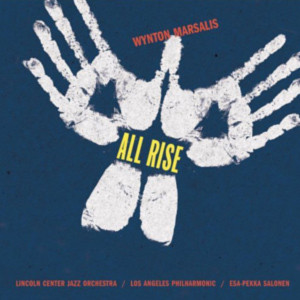
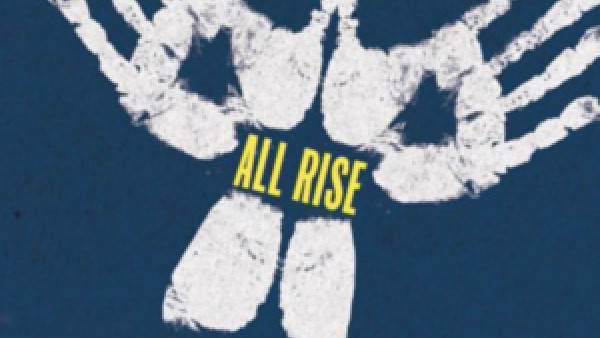
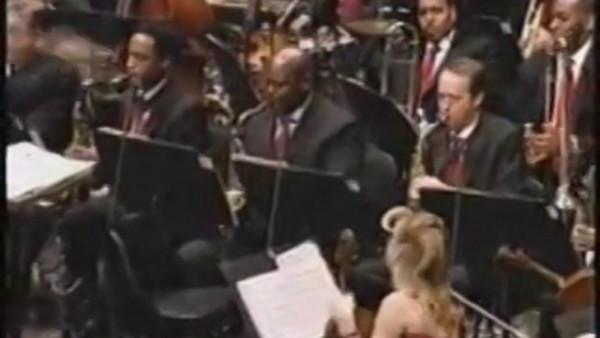
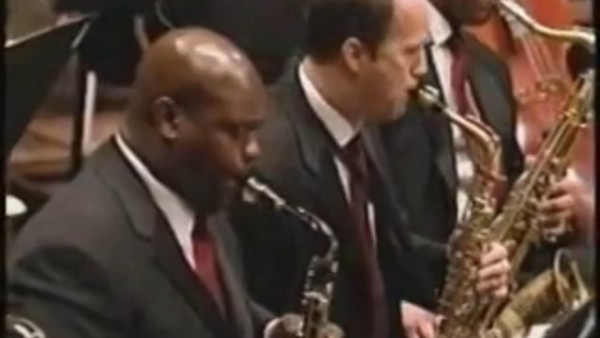
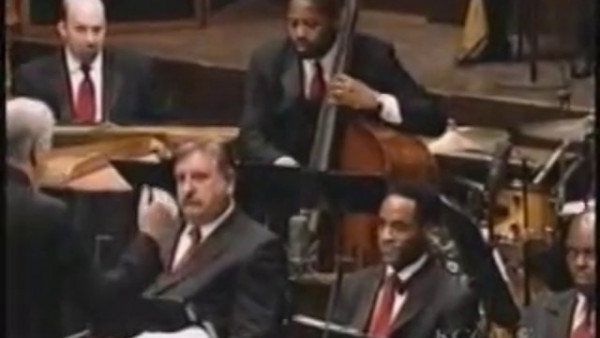
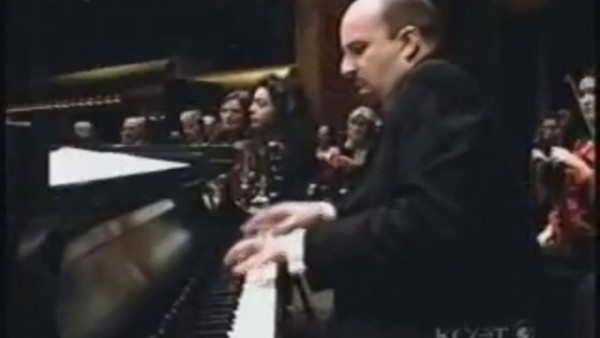
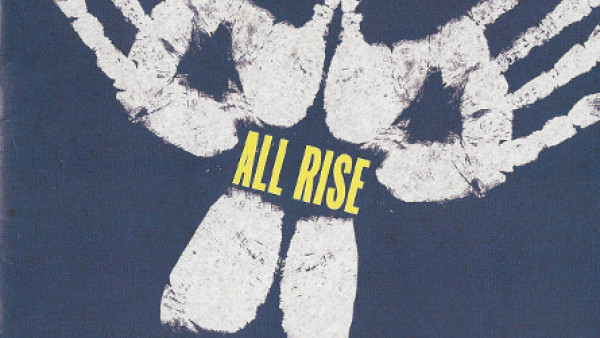
Comments
How did it went the first concert?…….any info or link to reviews?…
Thanks in advance.
Good luck with following nights and matineé.
Take care.
C.
careba on Jan 19th, 2007 at 11:02am
All Rise at Symphony Center (a/k/a Orchestra Hall) and the Saints v. Bears on the same week-end?! Expect a lively NOLA turnout for both. Only in Chicago!
gloria on Jan 16th, 2007 at 11:37am